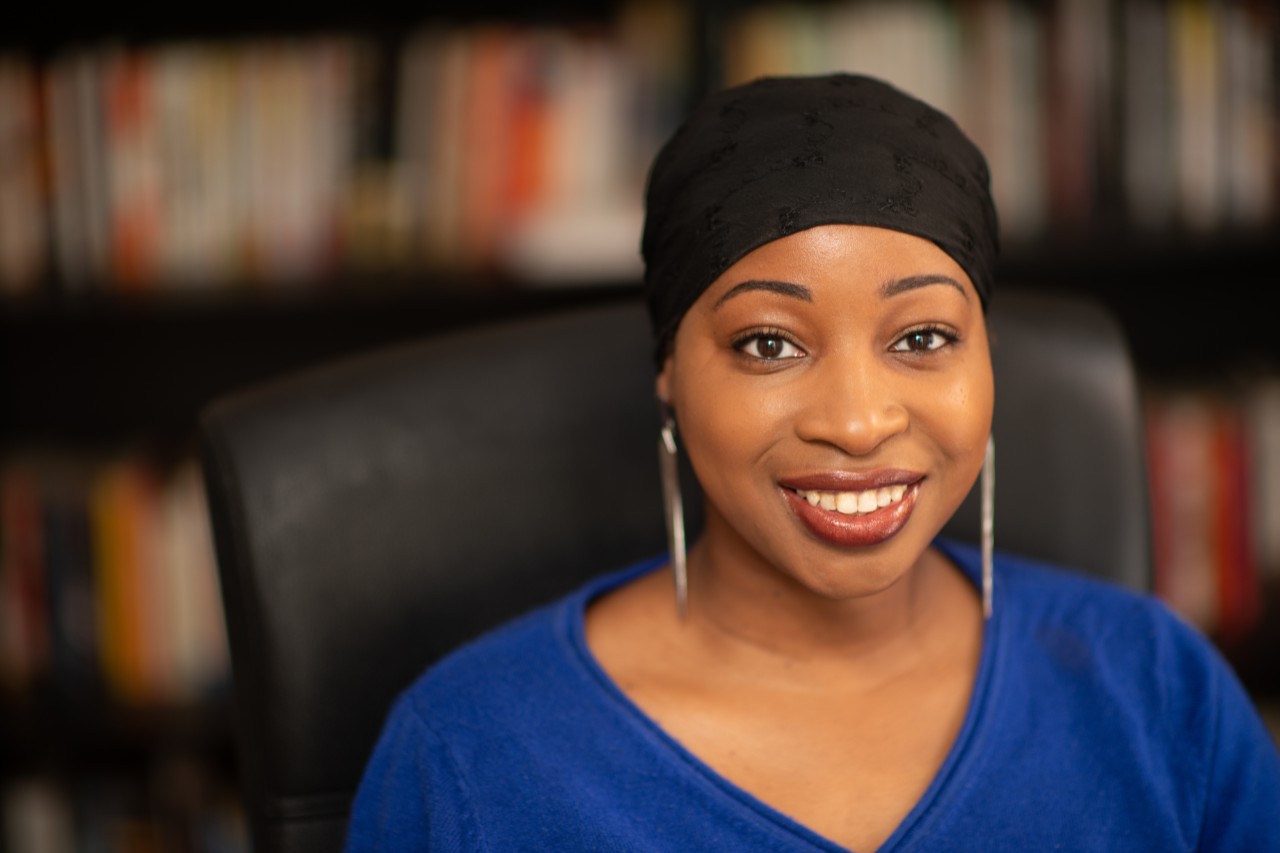Sakinah Hofler's Writing Bears Witness to the World Around Her
Written by Chris Pasion, graduate assistant to The Graduate School.

Sakinah Hofler, a PhD candidate in creative writing, once referred to herself as a “former engineer.” The title originated from bouts of imposter syndrome that she struggled with, as calling herself a writer just seemed too out of reach at the time. Over the past few years, however, she adopted one that is much more appropriate: published author.
Sakinah’s path to a writing career was forged one legal pad at a time, and she writes stories that pull inspiration from the world around her. Each story starts with pen and paper, which she sees as a judgement-free zone that is far removed from writing on a computer or tablet. “I write by hand first, and then the next day I’ll sit down and transcribe what I’ve written on a computer, make some edits, and start the next 1,000 words on pen and paper.” This has been Sakinah’s method, following Ray Bradbury – author of the banned book about banned books, Fahrenheit 451 – and his “1,000 words a day” writing advice. She has used this method to complete short stories, poetry, and screenplays, as well as her upcoming novel.

Sakinah’s first big break in writing came in 2017, when she won the Manchester Fiction Prize for her compelling short story “even the kids know better,” an account of inner-city gun violence and its tragic aftermath. “That was the first thing I won, and it happened the first year I was at UC, so I was like ‘Maybe I am a writer,’” she says. “It was just very validating.” Since then, Sakinah has become a highly decorated writer; this year alone, she won the Hurston/Wright Award for College Writers in Fiction, a Taft Dissertation Fellowship Award, a P.E.O. Scholar Award, and other awards and fellowships. But writing wasn’t something that Sakinah pursued seriously until after she tried out more “practical” career paths.
In a past life, she was a quality assurance engineer at the United States Department of Defense. “It got to the point where I was working from 7 a.m. to 4 p.m. for the DOD, and I would wake up at 4:30 a.m. to write,” she says. “I would write during my lunch break and after work I would go take writing classes. I had no social life. I ended everything and was like I must write.” She decided it was time for a change when she was spending more time in staff meetings daydreaming fictitious stories with a rotating cast of her coworkers, rather than focusing on her engineering work.
Earlier this year, Sakinah gave a TEDx talk that explored the idea of bearing witness to the world by writing down your thoughts and observations. In the presentation, she poses the idea that writing can be used as a tool to comprehend difficult scenarios that are hard to unpack mentally. She encourages the audience to focus on three things when writing: the details, the order of events, and, most importantly, how it made them feel. She explores this further in an Ideas article for TED.
“It was daunting,” she says about preparing for her TEDx talk, “because every other time I practiced, I would mess up or mix up names and information. I found that I’d have a good one, and then a bad one, and then a good one, and then a bad one. Right before I went down for the TEDx talk, I practiced one more time in the bathroom and I messed up so badly. I was like ‘Since I messed up this time, I’ll nail it next.’ And that’s what happened. I’m glad I did it, it was exhilarating.”
Lately, outside of watching doomsday television (i.e. the news) and welcoming her son Ellison into the world, Sakinah has been putting the finishing touches on her first major novel Starshine, Stock, Clay (inspired by Lucille Clifton's poem "won't you celebrate with me"). The book is an exploration of forced prostitution and sex trafficking, a difficult subject that doesn’t get enough attention from society. Sakinah first became aware of the scope of the issue when volunteering at the Polaris Project, a nonprofit organization that works to eradicate modern day slavery. “The idea for the novel came out of my anger,” she says. “My goal is to explore the psyche of a woman who is stuck, who can’t go, and even when she tries to leave, how we as society treat her.”
“It’s a beast,” she says about working on the novel. With many characters to keep track of, plots and subplots to explore, and urgent themes to fully realize, this novel is Sakinah’s biggest undertaking yet. And with it, she is forming her own voice as a writer by giving one to the voiceless.